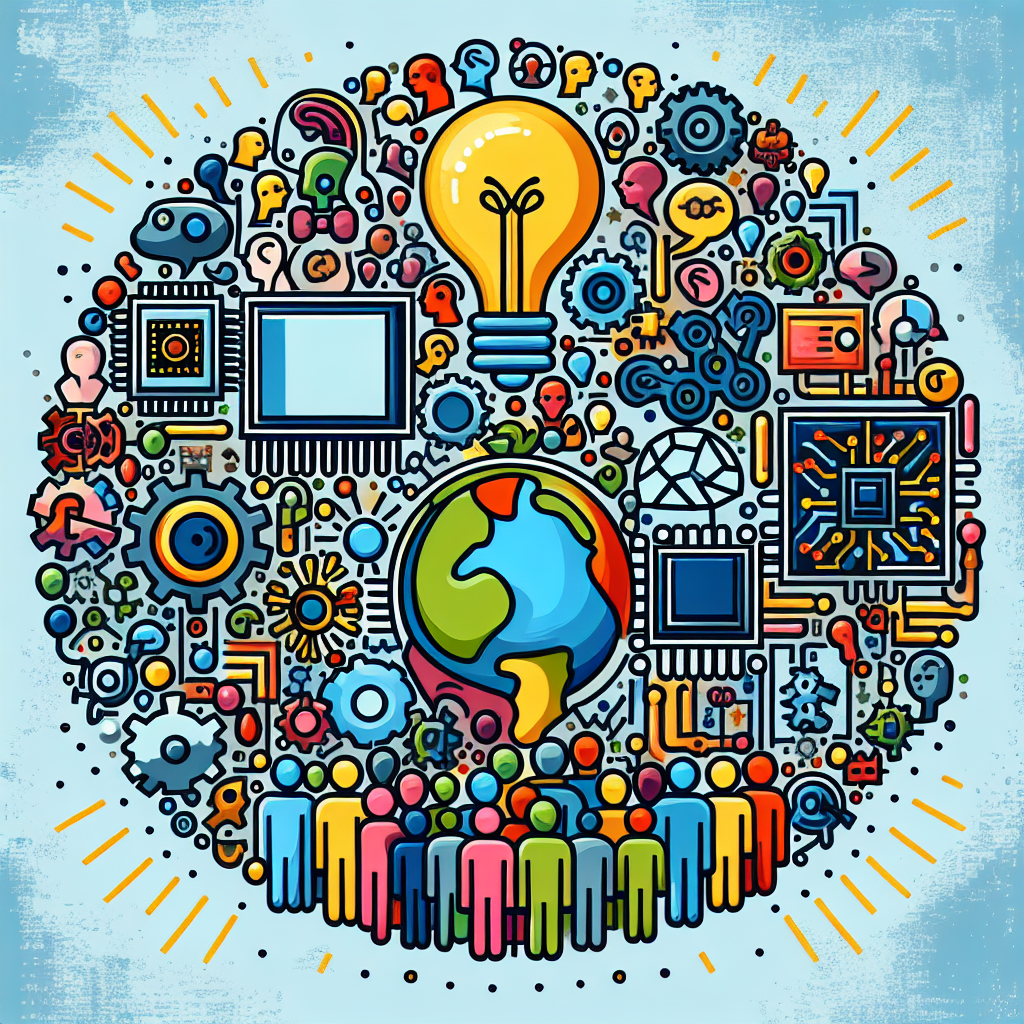In recent years, the field of artificial intelligence (AI) has made significant advancements, revolutionizing various industries and transforming the way we live and work. However, as AI technologies become more prevalent in our society, concerns about bias, fairness, and inclusivity have also been raised. In order to address these issues and ensure that AI benefits all members of society, there is a growing movement towards democratizing AI.
Democratizing AI refers to the idea of making AI technologies more accessible, transparent, and inclusive for everyone, regardless of their background or expertise. By democratizing AI, we can empower individuals and communities to use AI in a way that aligns with their values and priorities, while also addressing the ethical and social implications of AI.
One of the key goals of democratizing AI is to ensure that AI systems are developed and deployed in a way that is fair and unbiased. This involves addressing issues such as algorithmic bias, which can lead to discriminatory outcomes in areas such as hiring, lending, and criminal justice. By democratizing AI, we can create more transparent and accountable AI systems that are designed to promote fairness and equity.
Another important aspect of democratizing AI is increasing access to AI technologies for underrepresented groups, such as women, minorities, and individuals from low-income backgrounds. By providing training, resources, and opportunities for these groups to learn about and work with AI, we can help to bridge the digital divide and ensure that everyone has the skills and knowledge to participate in the AI-driven economy.
In addition to promoting fairness and inclusivity, democratizing AI also has the potential to drive innovation and economic growth. By expanding the pool of individuals and organizations that can develop and deploy AI technologies, we can tap into a broader range of perspectives and expertise, leading to more creative and impactful solutions to complex problems.
There are several ways in which we can democratize AI and promote a more inclusive society. One approach is to invest in education and training programs that teach individuals how to design, develop, and deploy AI technologies. By providing hands-on experience and mentorship opportunities, we can empower people from diverse backgrounds to become AI practitioners and leaders in their communities.
Another strategy is to promote diversity and inclusion in the AI workforce. By recruiting and retaining individuals from underrepresented groups, we can ensure that AI technologies are developed and deployed with a wide range of perspectives and experiences in mind. This can help to prevent bias and discrimination in AI systems, while also fostering a culture of collaboration and innovation.
Furthermore, policymakers and industry leaders can play a key role in democratizing AI by creating policies and initiatives that promote fairness, transparency, and accountability in the development and deployment of AI technologies. This includes establishing standards and guidelines for ethical AI, as well as providing resources and support for organizations that are working to address bias and discrimination in their AI systems.
Overall, democratizing AI is a crucial step towards building a more inclusive society that benefits everyone. By promoting fairness, transparency, and accountability in AI, we can harness the power of this technology to drive positive social change and create a more equitable future for all.
FAQs:
Q: What are some examples of bias in AI systems?
A: Bias in AI systems can manifest in various ways, such as in the form of discriminatory outcomes in hiring, lending, and criminal justice. For example, AI algorithms used in hiring processes may inadvertently favor candidates from certain demographic groups, leading to a lack of diversity in the workforce. Similarly, AI systems used in predictive policing may disproportionately target individuals from minority communities, perpetuating existing biases in the criminal justice system.
Q: How can we address bias in AI systems?
A: One way to address bias in AI systems is to ensure that the data used to train these systems is diverse and representative of the population. This may involve collecting data from a wide range of sources and taking steps to mitigate any biases that may be present in the data. Additionally, organizations can implement measures such as algorithmic audits and bias testing to identify and correct biases in their AI systems.
Q: Why is inclusivity important in AI?
A: Inclusivity in AI is important because it ensures that AI technologies are developed and deployed in a way that benefits everyone, regardless of their background or expertise. By promoting inclusivity in AI, we can create more equitable and fair AI systems that reflect the needs and priorities of diverse communities. This can help to prevent discrimination and bias in AI systems, while also fostering innovation and creativity in the field.
Q: How can individuals get involved in democratizing AI?
A: Individuals can get involved in democratizing AI by participating in education and training programs that teach them how to design, develop, and deploy AI technologies. They can also advocate for policies and initiatives that promote fairness, transparency, and accountability in the development and deployment of AI. Additionally, individuals can support organizations that are working to address bias and discrimination in AI systems, and use their voices to raise awareness about the importance of inclusivity in AI.

